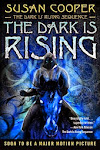I read this article by Nicola Griffith with interest and not a lot of surprise, which talks about how books with women as main protagonists don't seem to win major awards. The article analyses several awards from the last 15 years, including the Man Booker and the Pulitzer Prize, and divides them into categories: books by women about women or girls, books by women about men or boys, books by women about both; books by men about men and boys etc etc. The Pulitzer Prize came out the worst off, with no books in the last 15 years having been won by a man or a woman writing about a woman or a girl. The Man Booker was slightly better off with two books by women about women. Awards for children and young adults fare much better.
I decided to check out our own New Zealand Book Awards of the last few years. I had long been aware that New Zealand gives its female novelists the honours they deserve when it comes to this award: ten out of the last fifteen fiction awards have been given to women. What I hadn't thought about was the point of view characters of those books. What I found was rather interesting.
Of the last fifteen award winners, only one is wholly from the perspective of a woman or a girl. What is even more interesting is that the book is by a male author: Lloyd Jones's Mister Pip.
Out of fifteen books, with ten female authors, ten are from a male perspective, and four are from a mixed male/female perspective. Now I haven't read all the books, so forgive me if I have got any of these facts wrong.
So to break it down as Griffith does:
By men about men: 4
By men about women: 1
By men about both: 0
By women about men: 6
By women about women: 0
By women about both: 4
Griffith writes:
"Either this means that women writers are self-censoring, or those who judge literary worthiness find women frightening, distasteful, or boring. Certainly the results argue for women’s perspectives being considered uninteresting or unworthy. Women seem to have literary cooties."She then goes on to propose some possible solutions to the problem and also to ask for help in gathering data on this subject. So I'll be sending her a link to this blog post.
All of this is posted without comment, because to be honest, I don't know what it all means. Do I think women shouldn't write from the point of view of men? I do not! Do I think men should write from the point of view of women? If they want to. Does it say something about our wider serious literary culture that values men's stories over women's? Perhaps. Is it self-perpetuating within the book industry? Absolutely. What will I do to change things? I have no idea.








